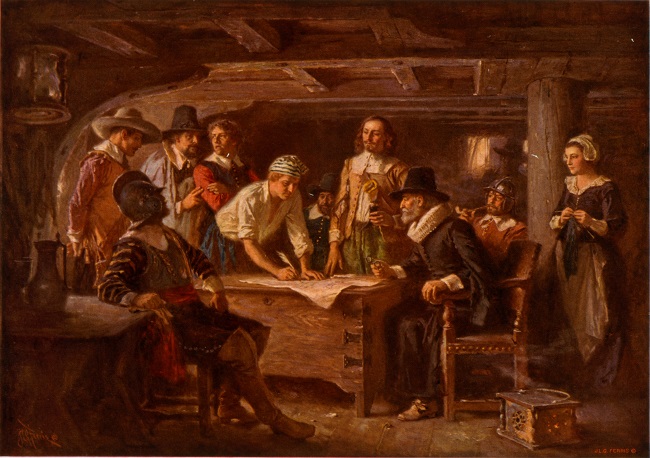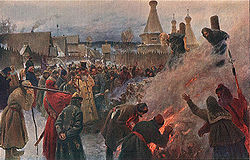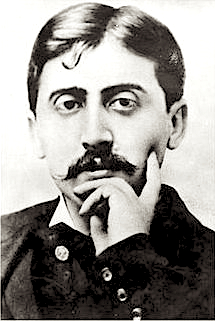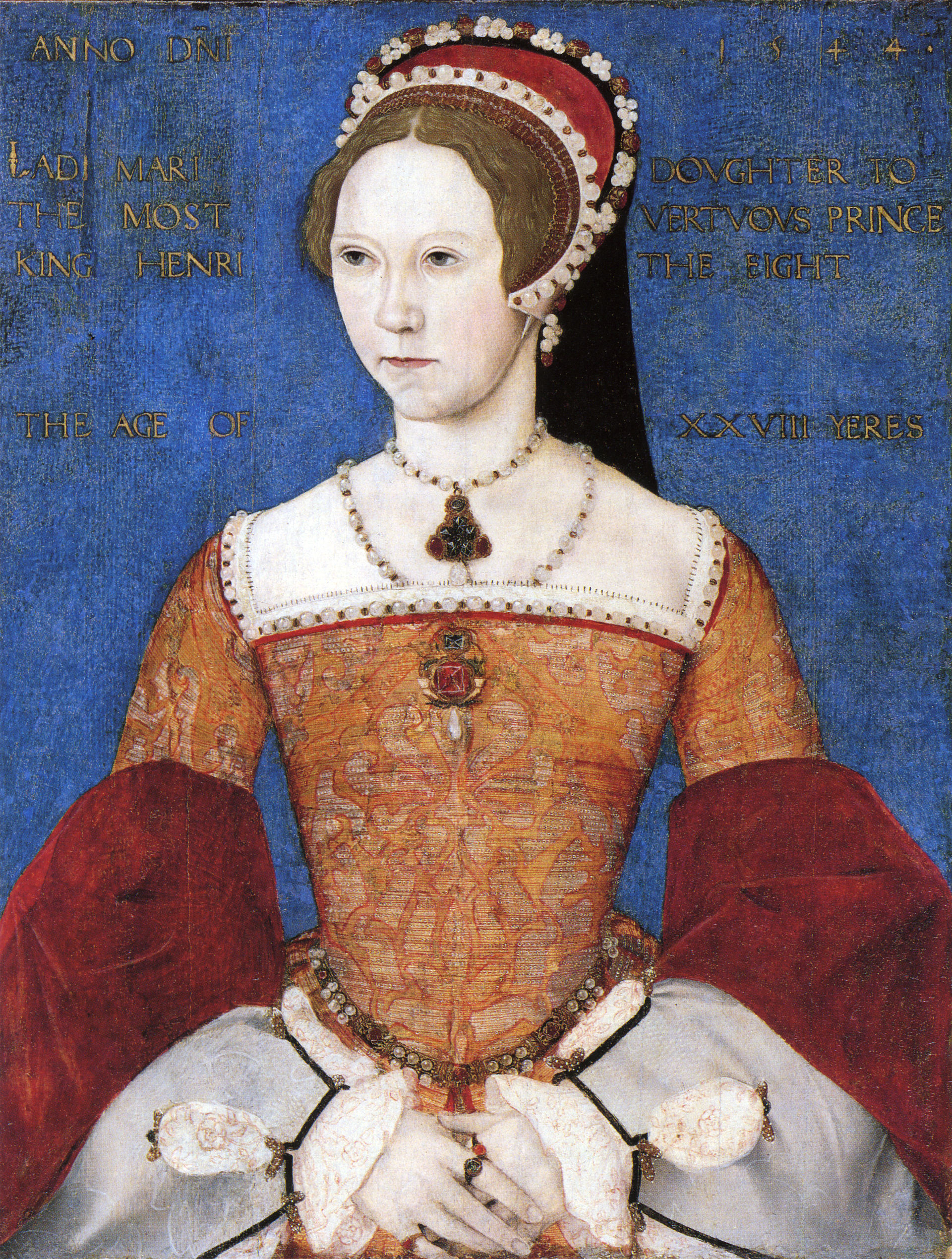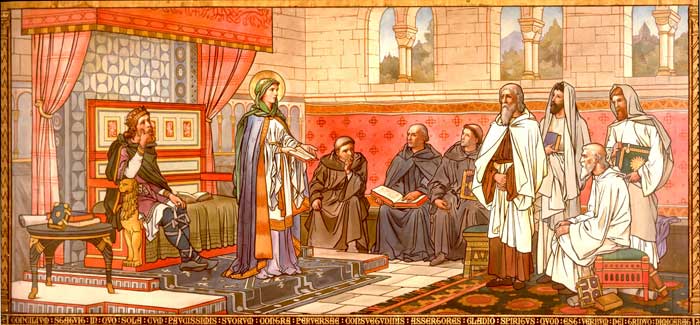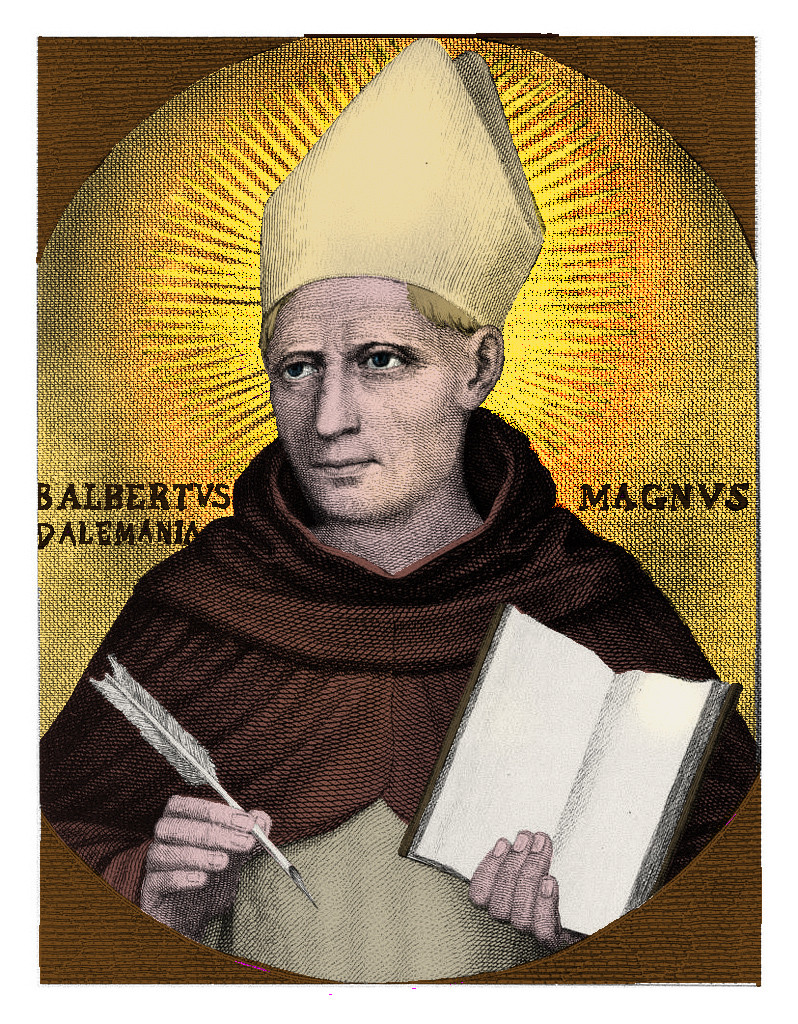1620
The Mayflower compact is signed. in July 1620 a band of English Separatist dissenters set sail from Holland for Virginia where they hoped to establish a colony that would allow them to practice their brand of Protestantism unmolested. Storms blew their ship Mayflower off course and they eventually made landfall in what is now Massachusetts. in order to frame their new government these “Pilgrim Fathers” bound themselves together in the following agreement:
In the name of God, Amen. We, whose names are underwritten, the loyal subjects of our dread Sovereign Lord King James, by the Grace of God, of Great Britain, France, and Ireland, King, defender of the Faith, etc.
Having undertaken, for the Glory of God, and advancements of the Christian faith and honor of our King and Country, a voyage to plant the first colony in the Northern parts of Virginia, do by these presents, solemnly and mutually, in the presence of God, and one another, covenant and combine ourselves together into a civil body politic; for our better ordering, and preservation and furtherance of the ends aforesaid; and by virtue hereof to enact, constitute, and frame, such just and equal laws, ordinances, acts, constitutions, and offices, from time to time, as shall be thought most meet and convenient for the general good of the colony; unto which we promise all due submission and obedience.
